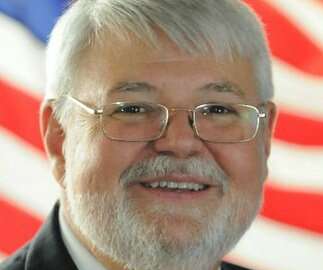
Senate companion bill for 5.3 percent pay raise gets union support
A Senate version of the FAIR Act, which would give federal employees a 5.3 percent pay raise, is gaining support from unions and area lawmakers.
Support for a 5.3 percent pay raise for federal employees is now coming from both chambers of Congress.
Sens. Brian Schatz (D-Hawaii), Barbara Mikulski (D-Md.), Ben Cardin (D-Md.) and Sherrod Brown (D-Ohio) have co-sponsored a companion bill this week to the House’s proposal to boost President Barack Obama’s 1.6 percent raise.
“For too long, federal employees have been undervalued and underappreciated. Whenever deficit reduction comes up, their wages are the first to take a hit,” Mikulski said in a statement. “Federal workers need a real pay increase, not just catch-ups trying to make up for years of pay freezes and diet COLAs. The long overdue pay increase in the FAIR Act is exactly what federal workers in Maryland and around our country need. I’m proud to fight on the frontlines on behalf of federal employee pay, just as federal employees work on the frontlines each and every day for the American people.”
Rep. Gerry Connolly (D-Va.) and 32 other congressmen last month proposed the Federal Adjustment of Income Rates (FAIR) Act. The bill would account for a 3.9 percent raise overall and a 1.4 percent raise in lost locality pay. Connolly introduced a 3.8 percent federal pay raise under the same bill name one year ago, but it didn’t go far.
Federal employees unions are backing both versions of the FAIR Act. American Federation for Government Employees National President J. David Cox said the raise will help employees pay off student loan debts, credit card bills “and so many of the everyday costs facing today’s workers.”
During a grassroots rally in February, Cox told reporters that a 5.3 percent boost was setting the bar high after six consecutive years of pay freezes or small bumps in pay, but it was a raise that was owed to the federal workforce.
In his March 18 statement, Cox said that without offering competitive wages and benefits, the government risks losing personnel to the private sector.
“The government relies on experienced employees to carry out vital programs and services on behalf of the American public,” Cox said. “We can’t afford to let these employees walk out the door.”
National Treasury Employees Union National President Tony Reardon said in a statement that the bill would give members of the federal workforce their “first appropriate pay increase in years.”
“It is past time for a just pay increase for federal employees,” Reardon said. “Federal workers are critical to the effective functioning of our country and they have already given too much in the name of budget savings.”
Rep. Stephen Lynch (D-Mass.) this week told audience members at the Federal Managers Association national convention in Alexandria, Virginia, that lawmakers were “continuing to fight on behalf of all federal employees for passage of the FAIR Act.”
“We must aim much higher if we’re going to provide our federal workforce on par with the private sector and also attract some new employees,” Lynch said, referring to the 1.6 percent proposal. “Some of these newer employees coming in, you have to have that incentive. The demands upon our federal employees are becoming more and more precise and demanding.”
The companion bills are backed solely by Democrats.
“We’re working on some Republicans to come over and help us on that,” Lynch said. “There are some folks that are willing. I think their leadership might have asked them to stay off the bill for now, but if we can talk to half a dozen of them and ask them to hold hands and come on the bill, it would be nice to have some bipartisan support there.”
Requests for comment were not immediately answered from Republican members who represent Washington-area districts.
The House Republicans’ fiscal 2017 budget, titled “A Balanced Budget for a Stronger America,” does not mention a pay raise for federal employees.
The Federal Salary Council voted in November to change some of the criteria for studying and adding new locations as federal locality pay areas. The Federal Pay Agent added 13 new locations in the fall, bringing the total number of locality pay areas to 47.
Copyright © 2025 Federal News Network. All rights reserved. This website is not intended for users located within the European Economic Area.





